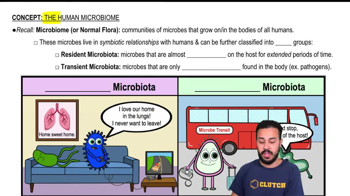Textbook Question
Which of the following statements is true?
(A)Archaea and bacteria have identical membrane lipids.
(B)The cell walls of archaea lack peptidoglycan.
(C)Prokaryotes have low levels of genetic diversity.
(D)No archaea are capable of using CO2 to oxidize H2, releasing methane.
2247
views




